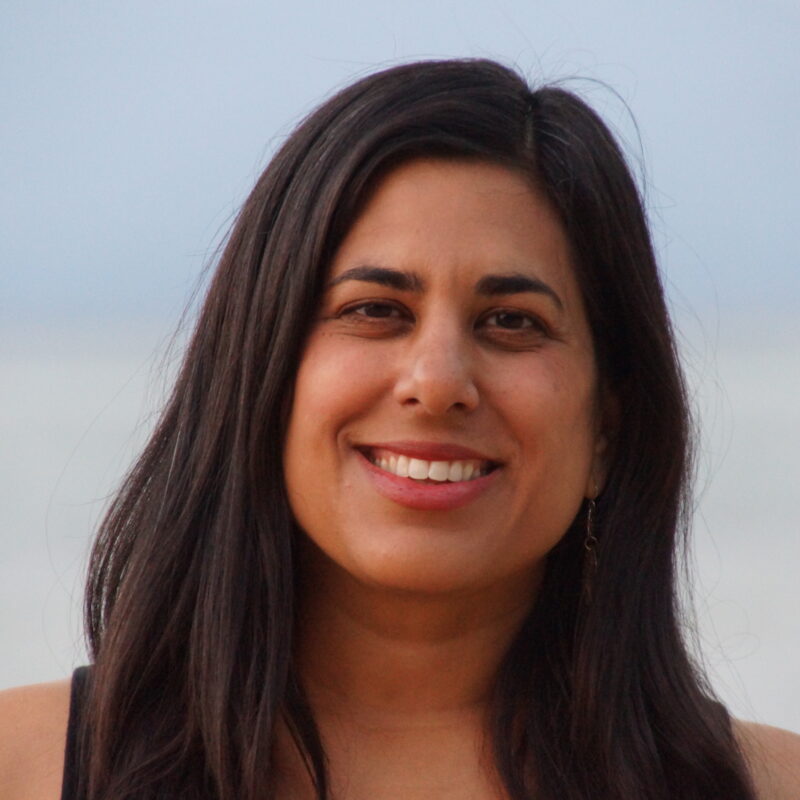Centering the Local in Global Climate Change Education
by Neela Nandyal
Director of Global Studies, St. Catherine University
Ph.D. Candidate, University of Minnesota – Twin Cities
Can climate change education prepare students for the challenges of life in the Anthropocene? What pedagogies and curricula can support youth in developing the tools we need to transition to a low-carbon world? And are we using the right scale to think about climate change in the diverse settings where education takes place?
In my research on youth climate hope and environmental education in coastal Ecuador, I have found that young people have much more acute understandings of local, short-term environmental change than of global warming, and that this knowledge shapes their future outlooks on the environment and practices for sustainability. As I continue this research, FreshEd podcasts help to inform my thinking on the role of place-based pedagogies and curricula in developing meaningful climate change education in schools.
In the Flux episode titled ‘River of Development/Melawan Lupa’, Aizuddin Mohamed Anuar transports the listener to Malaysia, tracing the dilemma of development across space and time, grounding his thinking in the stories of his own family and of independent Malaysia. I listened to this episode one snowy January morning while walking around my Minnesota neighborhood. The sounds of monsoon downpour filled by ears as I navigated the icy sidewalks, and I was struck by the way that the key issues in global climate change education – culpability, development tensions, and the challenge of abstraction – were all encapsulated in this seemingly personal and place-based narrative. In this narrative, Anuar explores his own identity as an “agent of development”, first as an engineering graduate working for the national petroleum company that funded his studies, and later as a doctoral student learning from youth at rural schools.
Anuar’s story also gets at an inconvenient truth that is often pushed to the margins in Comparative and International Education (CIE) scholarship: the complicity of formal education in the climate crisis. Christina Kwauk and Radhika Iyengar address this issue head-on in ‘Climate Education beyond COP26’, arguing that education must be reimagined to “radically reorient its very purpose”. I remember first listening to this episode while at my gym, just after COP26 in Glasgow had finished. I hadn’t attended the climate summit and was curious to hear what these scholars had thought about it. What I heard from Kwauk and Iyengar was a pronounced frustration with the “exclusive” nature of the COP, the inability of youth activists to authentically participate, and the lack of local efforts present in the accounting of progress on U.N. Sustainable Development Goal 4.7 (which, among other things, calls for sustainable development education). Kwauk and Iyengar make the important observation that “if we really want to see the transformative potential of education, we have to get at the systemic issues that are driving the climate crisis, which means we have to bring those issues into the classroom” and argue that more contextualized and local content will call attention to the social justice issues that perpetuate and exacerbate the climate crisis.
But teaching about climate change can be uncomfortable, as Audrey Bryan explains in ‘Teaching the Climate Crisis’. In this episode, Bryan frames global climate change as a type of “difficult knowledge” that challenges students and teachers to examine their own culpability in the crisis. By chance, I caught this episode one summer morning while commuting on public transit to a teacher workshop on climate literacy education and was surprised to find that both the workshop and Bryan highlighted the value of using Disney films as age-appropriate ways of initiating conversations about climate change with younger children. Bryan advocates for the use of storytelling and other arts-based pedagogies as a means of making space for emotion in the classroom and addressing the problem of abstraction of climate change by making “the inexpressible expressible”.
These thought-provoking FreshEd episodes facilitate critical engagement with key issues in climate change education across the globe. When examined together, the work of these scholars presents a future of climate change education that hinges on fostering a connection to place. In my own research, I draw on these perspectives as I examine individual stories, local ecologies, and community-level action in the production of climate change education in Ecuador. For example, Anuar’s narrative prompts me to notice the ways that stories of environmental change are shared intergenerationally. The arguments of Kwauk and Iyengar help me to understand the struggles of environmental educators, as they strive to develop meaningful climate change learning within larger educational systems. Finally, Bryan’s examination of teaching climate change as “difficult knowledge” illuminates the problem of positionality as I think about how students in different contexts might process their own culpability in the climate crisis.
February 1, 2024






